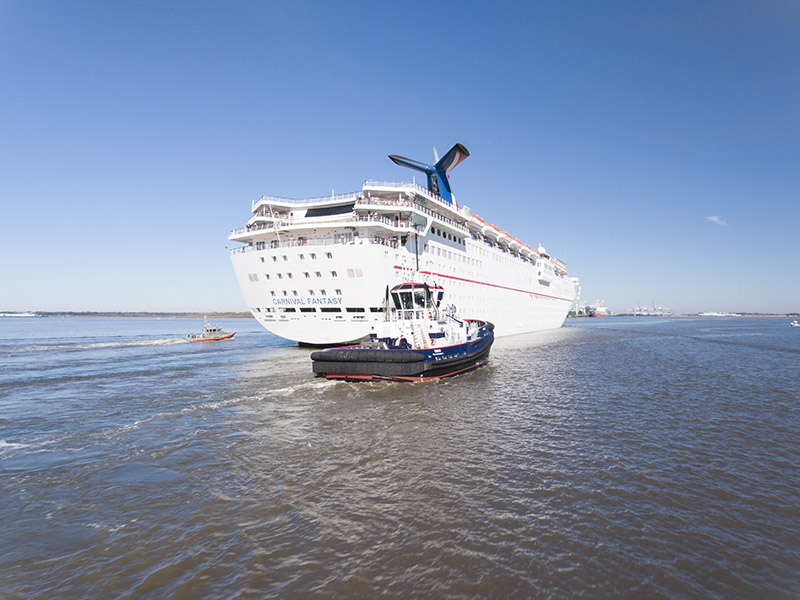Last week, U.S. Reps. Doris Matsui, D-Caif., and Jeff Fortenberry, R-Neb., introduced the Cruise Passenger Protection Act (CPPA) to strengthen passenger safety on cruise ships. The CPPA would build on the passenger safety measures signed into law through 2010's Matsui-led Cruise Vessel Security and Safety Act (CVSSA). The bill strengthens crime reporting and video surveillance requirements, improves medical standards, and holds cruise lines responsible for deaths, sexual assaults, and violent crimes at sea, according to a press release from Matsui's office.
“People deserve protections whether they are on land or at sea. If someone suffers a heart attack on board a cruise vessel, they deserve a standard of care, and if someone is sexually assaulted on board a ship, they deserve protections and a thorough investigation. For decades, that has not been the case,” said Matsui, author of the CVSSA, said in a statement. “I am proud to have worked with Democrats and Republicans to pass the CVSSA in 2010, but we still have much work left to be done. This legislation builds on the CVSSA by improving reporting requirements, raising consumer protections, and preventing bad actors from interfering in the pursuit of justice. I am grateful to the victims and families who have come forward to share their stories. It is on all of us to implement safeguards that protect families and give people piece of mind that when they board a cruise they will be safe. I look forward to working with Congressman Fortenberry and our colleagues in Congress to move this legislation forward and improve cruise safety for all.”
“Millions of Americans take cruises every year. They deserve a safe passage," Rep. Fortenberry said in a statement. "In 2016, a Nebraska couple tragically perished on a cruise ship. Their family has since been working courageously to ensure that others are adequately protected. I’ve met with their daughter and was impressed by her passion on this issue. I am pleased to support this important measure."
“Over the years, it has been clear that follow up legislation to the CVSSA is critical to ensure the safety and security of passengers on cruise ships” said Jamie Barnett, president of the International Cruise Victims. “We are pleased to see Congresswoman Matsui introduce strong bipartisan legislation that will safeguard future passengers and provide strong and fair victims’ rights for all.”
Under current law, cruise vessel owners and operators are required to report homicides, suspicious deaths, missing U.S. nationals, kidnapping, assaults with the serious bodily harm, firing or tampering with a vessel, thefts of over $10,000, and sexual assaults.
The CPPA builds on current reporting requirements and improves safety by:
- Ensuring a cruise vessel owner notifies the FBI within four hours of an alleged incident.
- Ensuring that if an alleged incident occurs while the vessel is still in a U.S. port, the FBI is notified before that vessel leaves the port.
- Requiring vessel owners to also report an alleged offense to the U.S. Consulate in the next port of call, if the alleged offense is by or against a U.S. national.
- Clarifying that vessels must have video surveillance equipment in all passenger common areas, and other areas, where there is no expectation of privacy.
- Allowing individuals access to video surveillance records for civil action purposes.
- Mandating that all video records are kept for one year after completion of the voyage.
- Directing the Coast Guard to promulgate final standards within one year detailing requirements for the retention of video surveillance records.
- Requiring that the internet website of alleged crimes on cruise ships indicate whether the reported crimes were committed against minors.
- Directing the Department of Transportation to conduct a study determining the feasibility of having an individual charged with victim support services on board each passenger vessel.
- Requiring integration of technology that can both capture images and detect when a passenger has fallen overboard.
- Creating medical standards requiring that a qualified physician and sufficient medical staff to be present and available for passengers, crew members receive basic life support training, automated defibrillators are accessible throughout the ship, and the initial safety briefing includes important emergency medical and safety information.
- Ensuring that should a U.S. passenger die aboard a vessel, his or her next of kin could request the vessel to return the deceased back to the United States.
- Ensuring families of victims are able to pursue fair compensation after a death on the high sea. This gives cruise passengers the same rights as airline passengers.




